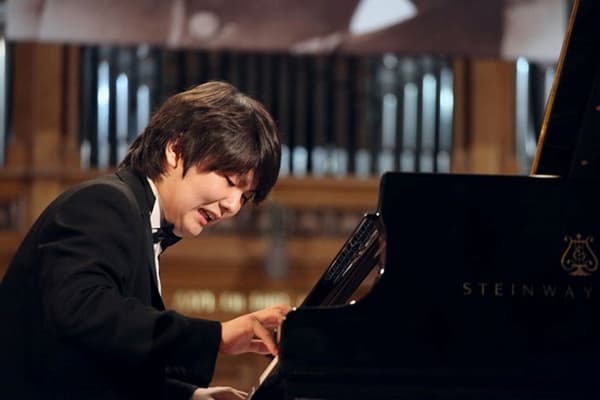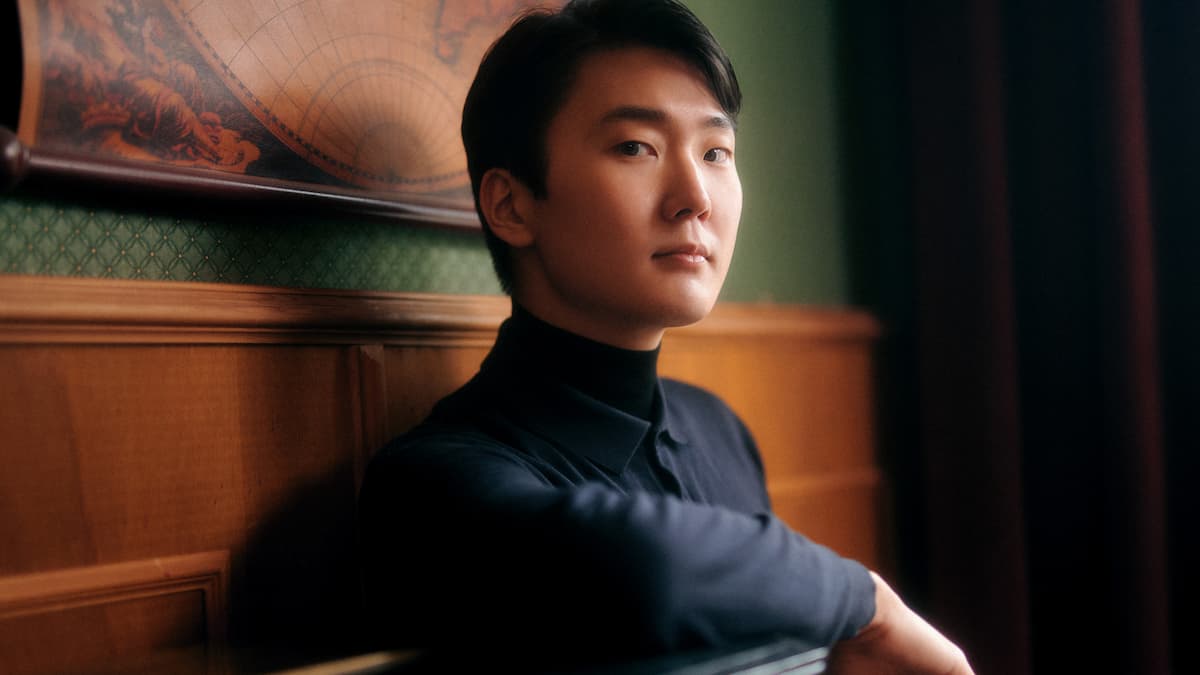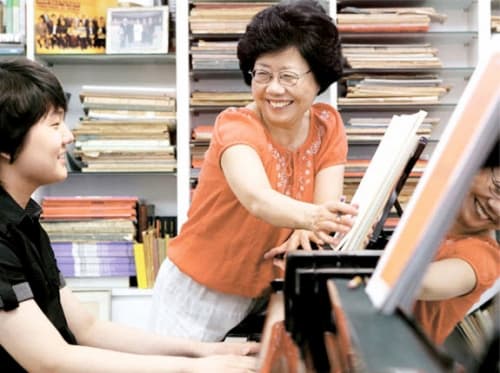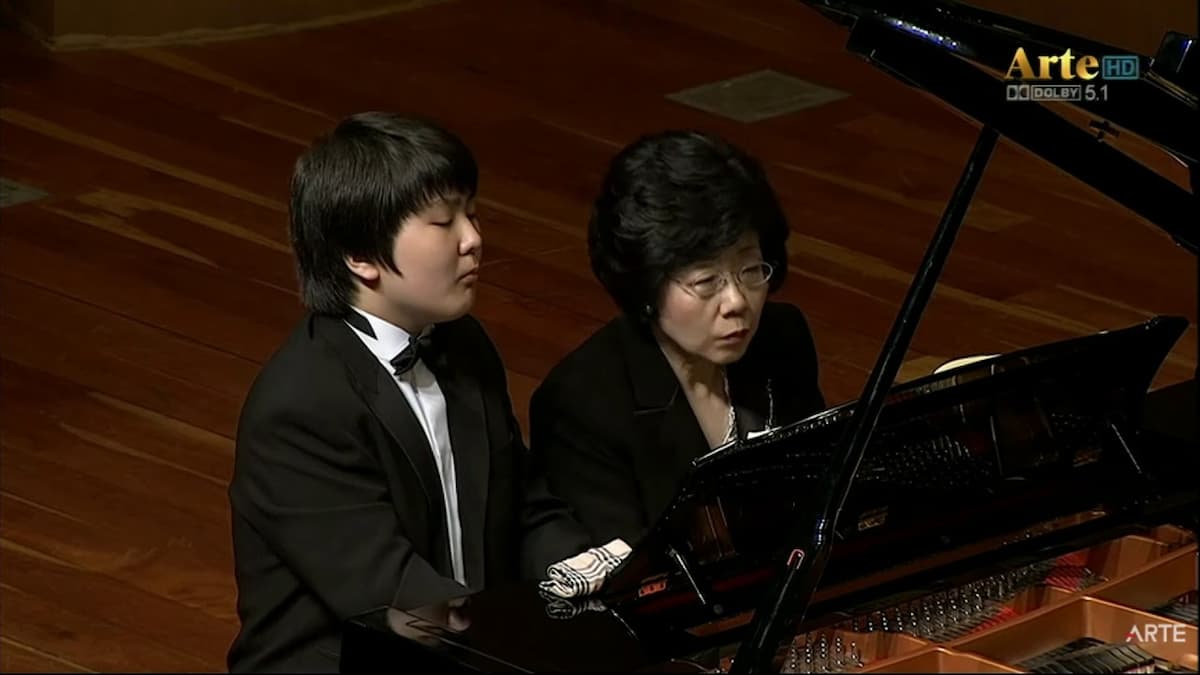By winning First Prize at the Chopin International Competition in Warsaw in 2015, Seong-Jin Cho immediately rose to international prominence. Signing an exclusive contract with Deutsche Grammophon in 2016, Cho has established himself as one of the leading pianists of his generation. Critics suggest, “His thoughtful and poetic, assertive and tender, virtuosic and colourful playing can combine panache with purity and is driven by an impressive natural sense of balance.”
Seong-Jin Cho Performs Chopin’s Piano Concerto in E minor, Op. 11 (Chopin Competition)
Childhood

Seong-Jin Cho
Born in Seoul, South Korea on 28 May 1994, Seong-Jin Cho grew up in a family that was mildly interested in music. Although there were no musicians in the family, his parents loved classical music. As a child, he listened to countless classical recordings at home, and music “always felt very natural to me.” His parents thought that Seong-Jin had a little musical talent, and they started the boy on violin and piano lessons at the age of six.
Initially, Cho wasn’t particularly drawn to piano but preferred the violin. He played the violin for six years as a hobby, “and my violin teacher in Korea really encouraged me to continue on this path.” As he explained in an interview, “there was a competition in Korea that had a piano section and violin section. I took part with both instruments and won the third prize in the violin competition. I didn’t win anything for piano.”
Johannes Brahms: 6 Piano Pieces, Op. 118: No. 6. Intermezzo in E-Flat Minor (Seong-Jin Cho, piano)
Piano or Violin

© Christoph Köstlin
Seong-Jin Cho enjoyed a number of activities, including sports and painting, but he was drawn to classical music. And part of a normal upbringing in Korean society includes learning to play an instrument. For Seong-Jin, playing the piano was initially a hobby, and “I didn’t want to practice too long, but still, I enjoyed playing and performing and also listening. So, from the beginning, I wanted to become a pianist. Although I didn’t know what that meant.”
He remembers his first piano teacher Park Sook-Ryeon as a very strict person. “No one gave me compliments, so I didn’t know that I was talented.” He gave his first public recital at the age of 11, “and I did some competitions and won some prizes in local competitions in Korea.” However, he confesses that he was not fully confident as the teaching “environment made me humble.”
Seong-Jin Cho Performs Chopin’s Impromptu No. 1, Op. 29
Early Experiences

Seong-Jin Cho and Professor Shin Soo-Yung
Seong-Jin remembers that the atmosphere was quite competitive. “There were so many musicians who wanted to be successful.” He attended Seoul Arts High School and there were about 50 pianists in his class. He recalls that “everyone practised more than I did, at least three or four hours a day.” He credits this environment for becoming more passionate about music. “I hate competition, but if you are surrounded by such passionate students, you’re naturally inspired by them.”
Seong-Jin Cho remembers that his teacher Shin Soo-Yung was quite strict. She received her studies at the Seoul National University, and also in Vienna and Peabody. A student of Leon Fleisher, she became the youngest faculty member at the National University in Seoul at the age of 26. According to Cho, “she’s a great teacher and musician, and her interpretation is very authentic and special, with a very interesting, unique way of phrasing.”
Claude Debussy: Images, Book 1 (Seong-Jin Cho, piano)
Competition Fever

Seong-Jin Cho and his teacher Shin Soo-Yung
In 2009, Cho became the youngest winner of the Hamamatsu International Piano Competition in Japan. He was only 14 years old, and musically speaking “I was not ready yet.” Since he started his piano studies comparatively late, Cho didn’t have much repertoire. However, his teacher Shin Soo-Yung asked him to participate because many great professors like Alessio Bax and Arie Vardi would be on site.
Cho rather enjoyed the experience, and in the aftermath of his win, he worked hard to expand his repertoire. He played a lot of Liszt and Chopin and also learned Beethoven and Mozart‘s sonatas and Beethoven concertos. Just two years later, in 2011, Cho won the third prize at the International Tchaikovsky Competition in Moscow, and his famed win at the Chopin Competition was just around the corner.
Cho has retained his shy demeanour, and he readily acknowledges that he doesn’t easily express his thoughts or feelings. “When I have to say something to the audience or when I have to grab the microphone, I feel, I start to become nervous. But when I play the piano, I feel very free. Then I can do whatever I want.”
For more of the best in classical music, sign up for our E-Newsletter
